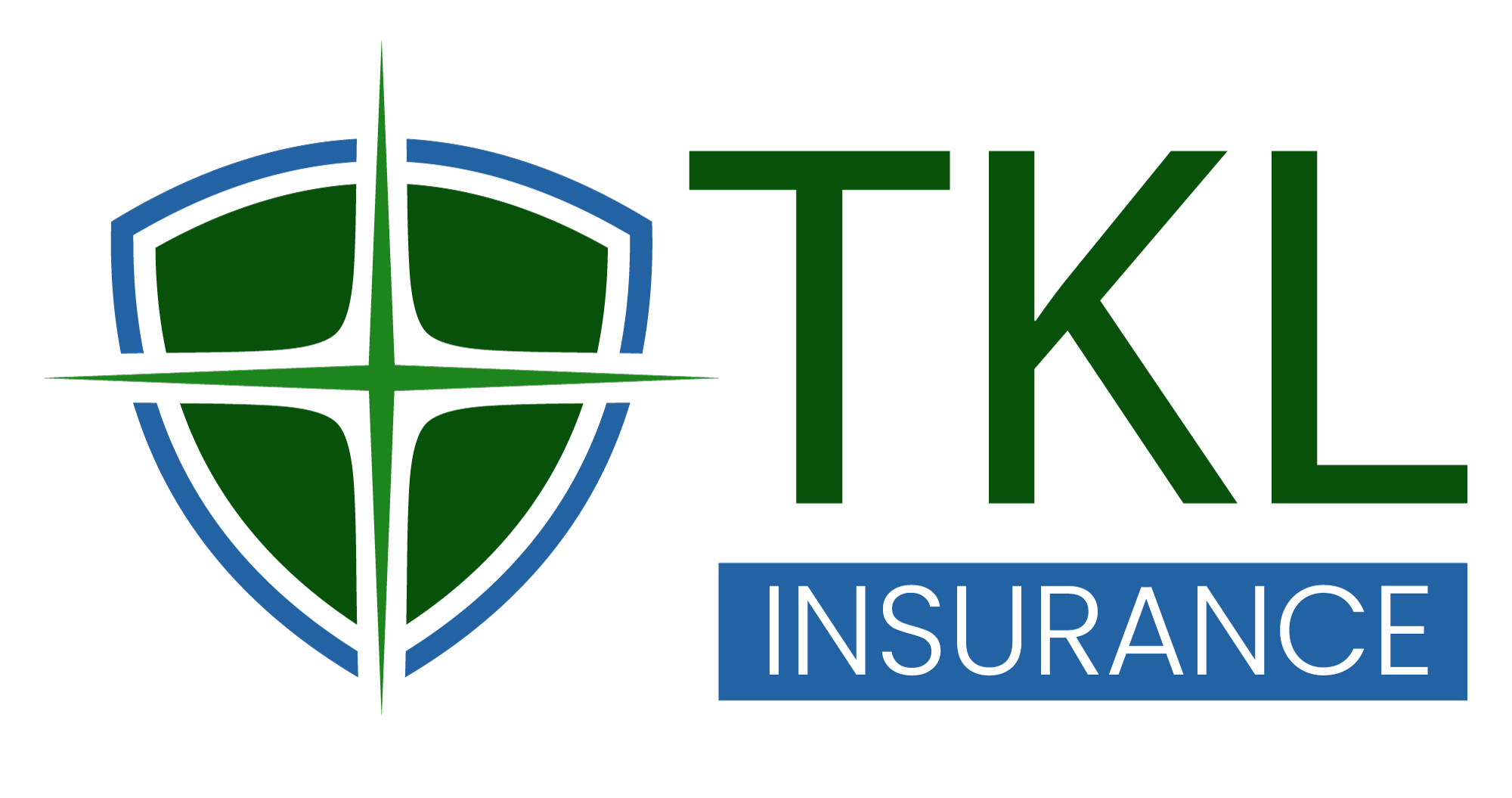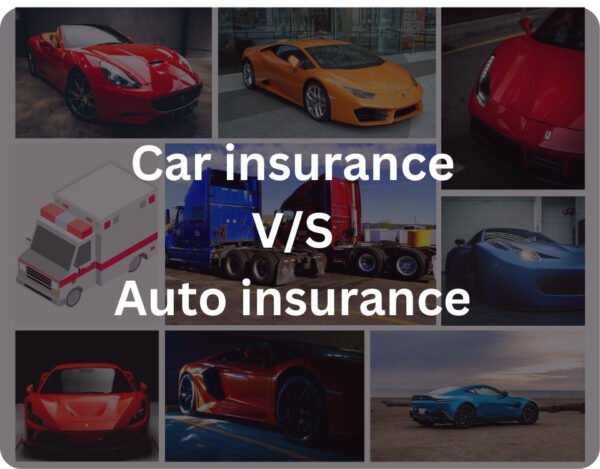Is Car insurance and Auto insurance the same?

USAA Car insurance review July 2025
July 24, 2023
Difference between exposure and coverage in insurance
July 26, 2023Table of Contents
ToggleIs Car insurance and Auto insurance the same?
Is car insurance and auto insurance the same? Yes, both terms mean the same thing. Car insurance and auto insurance are just two different names for the same type of coverage that protects your vehicle from damage, theft, or accidents. Learn why they’re used interchangeably and what coverage they include.
The terms car insurance and auto insurance both refer to the same type of insurance — the kind that protects your vehicle and covers damages, theft, or injuries if you’re in an accident.
So whether you say car insurance or auto insurance, you’re talking about the same thing.
People often use the terms “car insurance” and “auto insurance” interchangeably, but they both serve the same essential purpose: to protect your finances in case of an accident. The difference between them lies in what they cover and who they cater to.
Why Are There Two Different Terms?
“Auto insurance” is a more formal or official term. You will often see this in legal documents, policies, or company websites.
“Car insurance” is more common term used in everyday conversations.
Example:
You might Google “cheap car insurance”…
But on your insurance bill, it might say “auto insurance policy.”
Both are same thing just said in different ways.
-
In the United States, both terms are used.
-
In Canada or UK, people may say motor insurance or vehicle insurance instead.
Do They Cover the Same Things?
Yes! Both terms refer to insurance that includes:
Liability coverage – if you hit someone or damage his property
Collision coverage – for damage to your own car in an accident
Comprehensive coverage – for non-accident events like theft, fire, or weather damage
Uninsured motorist protection
And more, depending on your plan
So, the coverage stays the same — only the name changes.
What is Car Insurance?
Car insurance typically refers to coverage for personal vehicles like sedans, hatchbacks, or SUVs that you use for daily commuting or errands.
“Car insurance” is mainly meant for personal passenger vehicles. So, if you own a car you use for everyday commuting or pleasure driving, this is the type of insurance you’d likely get.
Best for: Private/personal use
Example: Sarah insures her Honda Civic that she uses to drive to work.
What is Auto Insurance?
Auto insurance is a broader term. It covers personal cars as well as commercial vehicles such as vans, trucks, and business fleets.
Best for: Both personal & commercial use
Example: John owns a bakery and insures his delivery van under auto insurance.
On the other hand, “auto insurance” has a broader scope and includes coverage for not only personal cars but also commercial vehicles. So, if you have a business that uses trucks or delivery vehicles, you’d need “auto insurance” to protect those assets.
In the US market, both car insurance and auto insurance share the same goal, which is to safeguard vehicles from potential losses due to accidents. But they serve different purposes and cater to different kinds of vehicles. For example, car insurance is perfect for John’s personal car, while auto insurance would be more suitable for John’s delivery trucks that he uses for his business.
In conclusion, Though similar in purpose, they differ. Car insurance covers personal vehicles, while auto insurance extends to commercial ones, considering distinct risks. All car insurance is auto insurance, but not all auto insurance is limited to cars.

Key Difference between car insurance and auto insurance?
Auto insurance and car insurance serve similar purposes, but they differ in scope. Car insurance usually covers personal vehicles like a sedan for individual owners. On the other hand, auto insurance extends to commercial vehicles, such as delivery trucks used by businesses. For instance, if X owns a sedan, they might opt for car insurance, whereas if X runs a delivery company with trucks, they would require auto insurance.
| Feature | Car Insurance | Auto Insurance |
|---|---|---|
| Vehicle Type | Personal cars (e.g., sedans, SUVs) | Personal & Commercial (e.g., trucks) |
| Use Case | Personal commuting or errands | Business, delivery, and personal use |
| Example | Daily-use family car | Fleet of delivery trucks |
Is all car insurance the same?
No, car insurance policies vary depending on coverage options and providers. For example, X’s comprehensive car insurance may offer full protection against accidents, theft, and natural disasters, while Y’s basic policy might only cover minimal damages in accidents.

Can you have different car insurance policies?
Yes, you can have different car insurance policies. There are a few reasons why you might want to do this:
- To get the best coverage for your needs. Different insurance companies offer different coverages, so you may be able to get better coverage by having policies with multiple companies.
- To save money. If you have multiple cars, you may be able to save money by having separate policies for each car.
- To meet the requirements of your state. Some states have different requirements for car insurance, so you may need to have separate policies for each car if you live in one of these states.
It’s important to note that if you have multiple car insurance policies, you will need to make sure that the coverages are compatible. For example, if you have collision coverage on one policy and comprehensive coverage on another policy, you may not be covered if you are in an accident that involves both types of damage.
You should also make sure that you are aware of the deductibles for each policy. If you have a high deductible on one policy and a low deductible on another policy, you may want to consider filing a claim on the policy with the lower deductible.
If you need multiple car insurance policies, you should talk to an insurance manager to discuss your specific requirements. They can help you to determine whether multiple insurance policies are the right option for you and can help you to find the best policies for your requirements.
Is car insurance and auto insurance the same in California?
Certainly! In California, car insurance and auto insurance are used interchangeably to refer to the same type of coverage. For instance, if X is a California resident looking for insurance for their new car, they might search for “car insurance” or “auto insurance,” and both terms will lead them to similar insurance policies offered by various providers in the state.
is car insurance and auto insurance the same in Florida?
Yes, car insurance and auto insurance are essentially the same in Florida. Both terms refer to insurance coverage for vehicles, providing financial protection in case of accidents, damages, or theft. For instance, if X is a Florida resident looking for insurance for their new car, they might search for “car insurance” or “auto insurance,” and both terms will lead them to similar insurance policies offered by various providers in the state.
what car insurance does not cover?
Car insurance does not cover everything, and there are several things that are typically excluded from coverage. Some of the most common exclusions include:
- Damage to your car caused by intentional acts. This includes damage that you cause to your car, as well as damage that is caused by someone else who is acting intentionally, such as vandalism or theft.
- Damage to your car caused by mechanical breakdown. This is typically not covered by car insurance, but you may be able to purchase a separate policy to cover mechanical breakdowns.
- Damage to your car caused by driving under the influence of alcohol or drugs. If you are driving under the influence and you are in an accident, your car insurance may not cover the damages.
- Damage to your car caused by racing or stunt driving. If you are racing or stunt driving and you are in an accident, your car insurance may not cover the damages.
- Damage to your car caused by driving on an unapproved road or trail. If you are driving on an unapproved road or trail and you are in an accident, your car insurance may not cover the damages.
- Damage to your car caused by war or nuclear accident. These are typically excluded from coverage, as they are considered to be acts of God.
Is car insurance and auto insurance the same as PMI?
No, car insurance and auto insurance are not the same as PMI (Private Mortgage Insurance). Car insurance and auto insurance are both types of property and casualty insurance that provide coverage for vehicles and protect against financial risks related to accidents and damages.
PMI stands for Private Mortgage Insurance. It is a type of insurance that lenders require borrowers to obtain if they make a down payment of less than 20% on a mortgage. PMI provides protection to the lender in case the borrower defaults on the loan. It acts as a safety net for the lender by mitigating their financial risk when lending to borrowers with smaller down payments. Essentially, PMI allows borrowers with lower down payments to qualify for a mortgage while providing assurance to the lender that their investment is protected.
FAQ:
Q1: Is car insurance and auto insurance the same thing?
A: Yes, they are the same. “Car insurance” and “auto insurance” both refer to a policy that protects your vehicle and covers financial losses due to accidents, theft, or damage.
Q2: Why are there two different terms – car and auto insurance?
A: It’s just a difference in wording. “Auto” is often used in formal or legal settings, while “car” is more common in everyday language. Both mean the same.
Q3: Does it matter if I search for auto insurance or car insurance online?
A: No, most insurance companies use both terms. You’ll get similar results whether you search for “car insurance” or “auto insurance.”
Q4: Are coverage options different between auto and car insurance?
A: Not at all. Coverage types like liability, collision, and comprehensive are exactly the same under both names.
Q5: Which term is used more in the USA?
A: “Auto insurance” is used more in official documents and by insurance companies, while “car insurance” is more popular in casual conversation.




